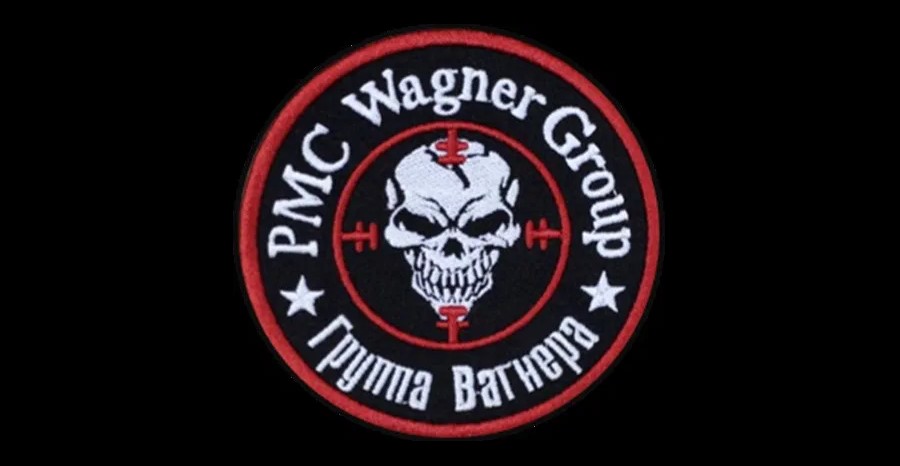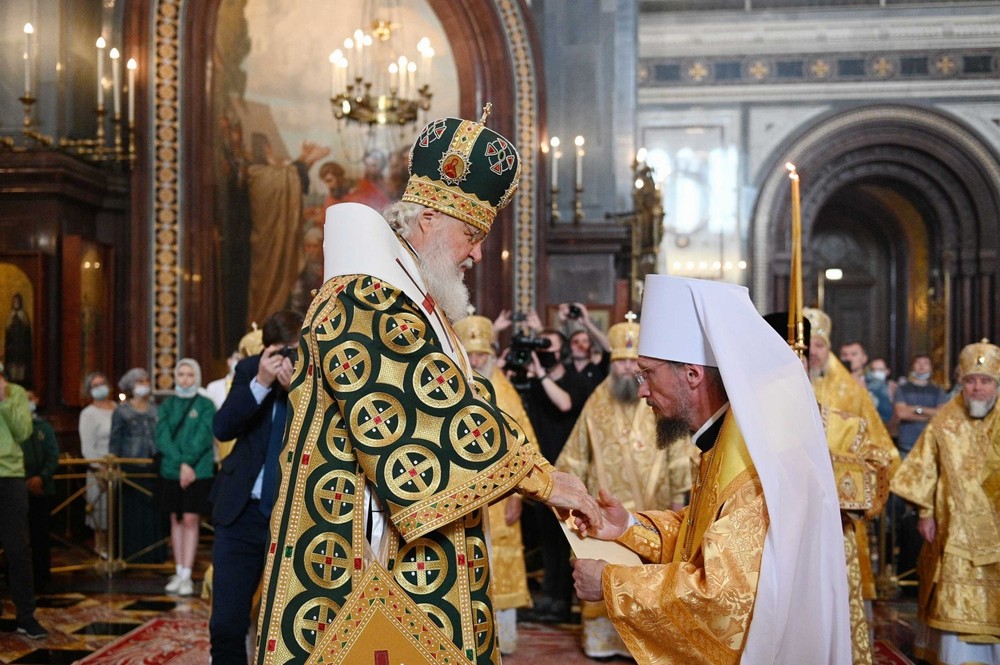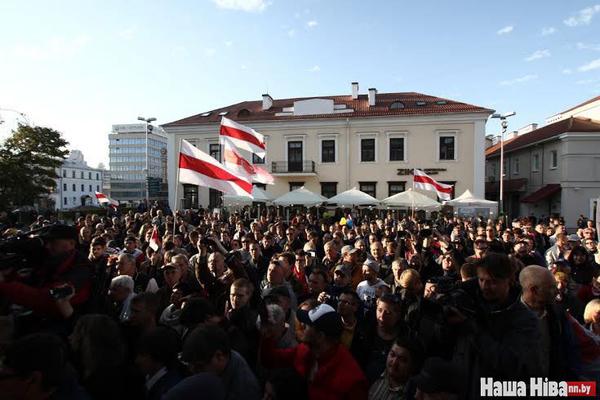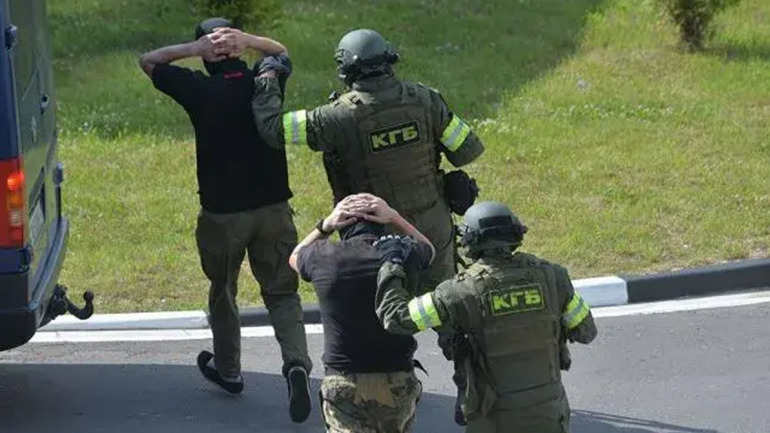At the end of last year, former Ukrainian president Petro Poroshenko (June 2014–May 2019) announced in an interview that, back in 2018, he had initiated a special operation to detain mercenaries belonging to the notorious Russian private military company (PMC) Wagner Group (News.ru, December 31, 2020)—a shadowy paramilitary outfit allegedly culpable in war crimes committed in Ukraine, Syria, Libya and Sub-Saharan Africa. Poroshenko additionally accused Ukraine’s current ruling elites of “sabotaging the operation” last summer and promised to pursue the matter until all “traitors” have been punished. This highly controversial episode established a dangerous new precedent with potentially far-reaching repercussions for Ukraine.
PMC Wagner is a unit of Russian military intelligence, mercs’ IDs show – SBU chief
The story Poroshenko was referring to first came to light on July 29, 2020, when Belarusian law enforcement detained 33 men near Minsk (Tut.by August 7, 2020). The local authorities claimed that the group—apparently all Wagner mercenaries—arrived in Belarus to take part in “igniting mass anti-governmental provocations” ahead of the approaching presidential elections (August 9, with early voting August 4–8). Despite the seriousness of the accusations and vigorous protestation of the Ukrainian government, which demanded the arrested individuals’ extradition, almost all members of the group were soon sent back to Russia. In time, however, the story developed further, revealing new details and stunning claims. Specifically, Ukrainian sources alleged that the detention of the Wagner militants in Belarus was, in effect, part of a failed special operation that sought to trick the mercenaries into arriving in Kyiv, where the group was to have been apprehended and brought to justice (News.ru, October 12, 2020). According to Ukraine, at least 9 out of the 33 men were Ukrainian citizens, and all of them allegedly took part in hostilities in southeastern Ukraine. Kyiv accused some of them of, among other crimes, shooting down (on July 17, 2014) Malaysia Airlines Flight 17, which resulted in 298 fatalities. Interestingly, while official Russian information sources either remained silent or shrugged off these charges, one Russian conservative writer who had himself volunteered to fight in Ukraine, Zakhar Prilepin, openly admitted that “there are two or three fighters [among the detained Wagner members] from my battalion” (Ura.news, July 29, 2020).
Ukrainian NGO collects data on 1,500 Russian “Wagner” mercenaries in Operation Trust remake
The incident triggered an acute political fracas inside Ukraine, particularly after Minsk handed 32 of the mercenaries (one had Belarusian citizenship) over to Moscow on August 14. Rival Ukrainian political factions began to accuse one another of treason and/or of spreading disinformation. Two main claims emerged from this infighting in Kyiv.
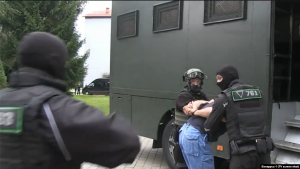
According to the first—primarily expressed by representatives of the current Ukrainian ruling elite—the entire narrative regarding the detention of the Wagner members in Belarus was nothing more than Russian disinformation aimed at compromising Ukraine. Denying the basis of the story entirely, President Volodymyr Zelenskyy harshly criticized “those who spread disinformation […] about some sort of a special operation” (NV, January 5). Zelenskyy’s statement echoed earlier disavowals by Andriy Yermak, the head of the Presidential Administration, who, in mid-August, suggested that the failed Wagner kidnap theory had been concocted by “forces within Ukraine eager to derail the ceasefire in the Donbas region.” Likewise, Kirill Budanov, the chief of the Main Directorate of Intelligence of the Ukrainian Ministry of Defense (HUR MOU), claimed that no “special operation” was taking place since “it would have been impossible to trick Wagner fighters to come to Belarus without Russia’s knowledge” (NV, August 19, 2020).
This refutation, however, met with staunch opposition from a number of authoritative Ukrainian and foreign experts. For instance, Christo Grozev, of the open-source investigative team Bellingcat, contended that, according to unearthed evidence, the Ukrainian intelligence services came up with a “brilliant plan” to upstage Russian military intelligence, the Federal Security Service (FSB) and the Wagner Group, but that this plan was derailed by the Ukrainian authorities. In his comment, Grozev characterized the alleged actions of the Ukrainian ruling circles as either “treason or [driven by] political fear” (Censor.net, December 22, 2020).
Trending Now

An even harsher assessment came from a renowned military journalist and the editor-in-chief of the information outlet Censor.net, Yurii Butusov, who de facto openly accused members of the Presidential Administration (Andriy Yermak and others) of treasonous behavior and sabotaging a special operation as a means to avoid tensions with Moscow (NV, August 19, 2020). Butusov claimed that Yermak is not the only person keenly interested in normalizing Russian ties, whatever the cost might be. According to the Censor.net editor, the National Security and Defense Council’s First Deputy Secretary Ruslan Demchenko—a political figure tolerated by Poroshenko and promoted by Zelenskyy—has been playing a largely destructive role, remaining “a direct threat to Ukrainian national security.” With these remarks, Butusov implicitly accused Zelenskyy (not just his inner circle) of treachery against the state (Censor.net, August 18, 2020).
That said, the publicly available information on the purported foiled special operation lacks key details needed to confirm it; although some more recent developments have raised additional suspicions. For example, following the outbreak of the scandal, Zelenskyy without explanation denied a motion of the then-head of the HUR MOU, Vasyl Burba—reportedly, in charge of the special operation—to administer polygraph tests to Yermak and others who claimed knowledge of the failed Wagner capture scheme. On top of that, Burba was fired soon afterwards by presidential decree. Similarly, according to some Ukrainian sources, the aforementioned special operation collapsed due to the fact that the date of the final stage was changed by Zelenskyy, which allowed the Belarusian special cervices to apprehend the mercenaries on their territory to later hand them over to Moscow (Plus.obozrevatel.com, October 11, 2020).
New footage shows Russian PMC Wagner involved in crucial 2015 Debaltseve battle in Ukraine
Irrespective of whether the reported failed special operation is true or not, the scandal carries serious consequences. With respect to Belarus, this incident—as well as post-election domestic developments in general—clearly demonstrated the extent of President Alyaksandr Lukashenka’s current dependency on Russia. Yet it is Ukraine that has attracted most of the negative consequences of the Wagner fighters’ arrest just outside Minsk. Specifically, the affair spotlighted two important issues.
First, the dueling charges and denials underscored the intolerably high level of internal division within Ukraine’s ruling elite, where conflicting factions are eager to use all means necessary—even reveal purported state secrets—to hurt their opponents, with little consideration of the repercussions for national security.
Second, if the alleged special operation was, indeed, derailed because of treasonous actions of some policymakers (as certain experts have argued), then this shows that Moscow’s penetration of the state—which facilitated Russia’s “hybrid” annexation of Crimea and “separatist” war in southeastern Ukraine—has still not been effectively dealt with by Ukrainian counter-intelligence since 2014.
Read More:
- Strategic thinking and a fight for Belarusian democracy
- Ukraine in review: the biggest stories of 2020
- Zelenskyy’s party expels whistleblower but the monolith has cracked
- Wagner in Belarus: Ukrainian journalists cry treason as high officials suspected of blowing MID special op
- Belarus hands over 32 of 33 Russian Wagner mercenaries to Russia
- Russian Wagner mercenaries arrested in Belarus: ‘little green men’ scenario, fighters in transit, or other?
- Ukrainian NGO collects data on 1,500 Russian “Wagner” mercenaries in Operation Trust remake
- Russian active-duty military fought against Ukraine in ranks of private military company: Media report
- PMC Wagner is a unit of Russian military intelligence, mercs’ IDs show – SBU chief
- New footage shows Russian PMC Wagner involved in crucial 2015 Debaltseve battle in Ukraine
- From Donbas to Syria: investigation reveals Ukrainians fighting in Russian PMC Wagner
- Kremlin rapidly losing control of ‘private military company’ story
- Russian mercenaries fighting in Ukraine and Syria decorated with state awards, cyber sleuths reveal

